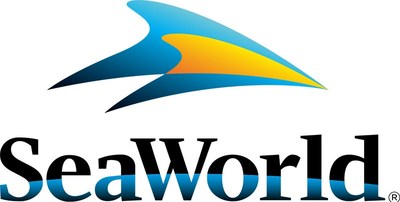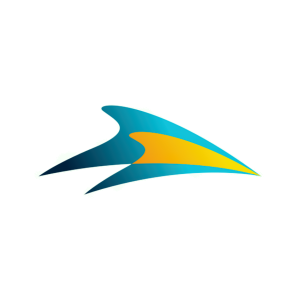SeaWorld Commemorates Five Years Since the First Successful Rescue and Rehabilitation of an Endangered Cook Inlet Beluga Calf
SeaWorld marks the fifth anniversary of the successful rescue and rehabilitation of Tyonek, the first Cook Inlet beluga calf. Rescued in 2017, Tyonek was deemed non-releasable by NOAA due to health issues and has been cared for at SeaWorld since March 2018. This partnership has contributed to over 20 scientific studies that enhance understanding of beluga behavior and health. Cook Inlet belugas remain endangered, with fewer than 300 individuals left. SeaWorld continues its commitment to marine conservation through research and public engagement events like Belugas Count!, scheduled for September 23, 2023.
- Tyonek's care contributes to vital research on beluga behavior and conservation efforts.
- Collaboration with NOAA and multiple aquariums enhances scientific understanding of endangered species.
- SeaWorld's rescue team has supported over 40,000 animals in need.
- Cook Inlet belugas are critically endangered with fewer than 300 individuals remaining.
- Rescued in 2017 at approximately two weeks of age, Tyonek is the first Cook Inlet beluga calf to be successfully rescued and rehabilitated
- Cook Inlet belugas are a geographically isolated and endangered population whose numbers continue to decline in the wild and are one of NOAA Fisheries' "Species in the Spotlight"
- Rescue and rehabilitation team included Alaska SeaLife Center, SeaWorld, Shedd Aquarium, Mystic Aquarium, Georgia Aquarium, and Vancouver Aquarium, under the direction of the National Oceanic and Atmospheric Administration (NOAA)
- NOAA deemed Tyonek non-releasable and selected SeaWorld San Antonio to provide long term care where he has resided since 2018
- Study and care of Tyonek helps scientists better understand wild beluga behaviors that can help preserve the species
DOWNLOAD HIGH-RES IMAGES HERE
SAN ANTONIO, March 8, 2023 /PRNewswire/ -- SeaWorld commemorates five years since a community of conservation groups came together to complete the first-ever rescue and rehabilitation of an endangered Cook Inlet beluga calf. Residing at SeaWorld since March 2018 when National Oceanic and Atmospheric Administration (NOAA) deemed the beluga, Tyonek, non-releasable, his care and study continues to advance the understanding of beluga behavior and health vital to protecting this endangered species in the wild. SeaWorld's dedication to beluga whale research, education and conservation has assisted research in more than 20 published scientific studies about the species.
"We are passionate about contributing to conservation efforts for threatened and endangered species of all kinds," said Dr. Chris Dold, Chief Zoological Officer at SeaWorld Parks & Entertainment. "Tyonek is a perfect example of what's possible when groups step forward together to be a part of the solution through the rescue and rehabilitation of animals in need. Because of the actions taken by this community of dedicated conservationists, we are making a meaningful impact on the preservation of endangered species like the Cook Inlet beluga."
Community Comes Together to Help an Orphaned Calf Stranded at Approximately Two Weeks Old
In September 2017, Tyonek was found stranded in Cook Inlet, Alaska by state and federal wildlife officers and reported to stranding network experts. He was malnourished, dehydrated and sunburnt on a mud flat fighting for his life. He was rescued and moved to the Alaska SeaLife Center where from October 2017 to March 2018, experts from SeaWorld, Shedd Aquarium, Mystic Aquarium, Georgia Aquarium, Vancouver Aquarium and NOAA Fisheries supported the Alaska SeaLife Center in providing Tyonek with around-the-clock care.
In January 2018, NOAA deemed Tyonek non-releasable as he was nutritionally and socially dependent on other belugas at the time of stranding. As a result, Tyonek lacked both the survival and socialization skills needed to be successful on his own in the wild, as well as being predisposed to a collapsed lung that prevented him from diving to catch fish. Due to these factors, NOAA looked to place him at a permanent care facility, ultimately selecting SeaWorld San Antonio because of its ability to accommodate Tyonek's medical needs and social development, including allowing him to join a diverse pod of belugas, ranging in age and gender. Also factoring into NOAA's decision was SeaWorld's ability to involve Tyonek in scientific study aimed at advancing conservation of wild populations.
"Although the end goal with every rescued animal is an eventual return to its natural environment, the animal's health and quality of life is always the number one priority," said Kimberly Damon-Randall, Director of the NOAA Fisheries Office of Protected Resources. "While Tyonek could not be released, we are appreciative that the care and study from organizations like SeaWorld enable us to better understand animal behaviors and help preserve wild species, like Cook Inlet belugas, which are one of NOAA Fisheries' "Species in the Spotlight" given their endangered status."
In the spring of 2018, Tyonek joined his new pod at SeaWorld San Antonio where he has learned how to vocalize, play, and dive for fish, as well as how to participate in husbandry behaviors (behaviors that allow animals to participate voluntarily in their own medical care) like conditioned weights and blood draws. He continues to learn communication skills, including a dialect which helped him integrate with the belugas around him. Belugas are extremely social animals, and the young depend on their pods to learn critical socialization and survival skills.
Study and Care of Tyonek Helps Scientists Better Understand Wild Beluga Populations
Using a microphone designed for underwater use, SeaWorld researchers recorded Tyonek's vocalizations, which allowed scientists to monitor and observe his vocal behavior. These recordings have contributed to research on the vocal development process and behavioral context of the various calls beluga whales make.
Researchers are using Tyonek's vocal recordings to learn more about the vocal development process of Cook Inlet belugas and how to determine the approximate ages of individual belugas within their pods. The hope is that these recordings will help scientists better understand the species' population dynamics and reproduction trends.
In a separate example, the Alaska SeaLife Center recently published a research paper on beluga calf response including contributions from SeaWorld. This research paper was two years in the making and highlights the response and care of two beluga calves at the Center: Naknek, a beluga from the Bristol Bay population, rescued in 2012 and Tyonek in 2017, now thriving at SeaWorld San Antonio. Both stories detailed in the paper provide invaluable information about the beluga populations the calves originated from and new information on wild beluga neonates. Findings in this paper offer tools to assist in the conservation of endangered populations, as well as aid in both wildlife rescue and rehabilitative care for future generations to come.
"I am so proud of how the professional zoological community came together to care for and learn from both calves," said Dr. Carrie Goertz, Director of Animal Health at the Alaska SeaLife Center. "This research is instrumental in providing researchers with a roadmap of how to care for young beluga whales and other cetaceans."
SeaWorld is a partner with NOAA in hosting an annual event called Belugas Count! This citizen science celebration, set for September 23, 2023, aims to bring together members of the public to focus on the endangered Cook Inlet beluga whale, fostering local pride, awareness, and stewardship. It is held in the greater Cook Inlet, Alaska area and draws participants from all over the world to viewing stations along the shores of Cook Inlet to see belugas in the wild. Cook Inlet beluga whales are one of nine species in NOAA Fisheries' "Species in the Spotlight" initiative because their population is endangered with fewer than 300 individuals.
For nearly 60 years, SeaWorld has amassed significant knowledge on whale behavior, health and physiology through care and study. This knowledge is vital to inform successful rescue, rehabilitation, and conservation of wild species. From belugas to killer whales to the North Atlantic right whale and beyond, SeaWorld is proud to play an important part in the research and conservation of marine mammals to ensure their healthy abundance for generations to come.
Tyonek was placed at SeaWorld San Antonio under NMFS Permit No. 18786-02 and activities are currently conducted pursuant to NMFS ESA/MMPA Permit No. 22095.
About SeaWorld Parks & Entertainment
SeaWorld Parks and Entertainment is a leading theme park and entertainment company providing experiences that matter, and inspiring guests to protect animals and the wild wonders of our world. The Company is one of the world's foremost zoological organizations and a global leader in animal welfare, training, husbandry, and veterinary care. The Company collectively cares for what it believes is one of the largest zoological collections in the world and has helped lead advances in the care of animals. The Company also rescues and rehabilitates marine and terrestrial animals that are ill, injured, orphaned, or abandoned, with the goal of returning them to the wild. The SeaWorld® rescue team has helped more than 40,000 animals in need over the Company's history. SeaWorld Entertainment, Inc. owns or licenses a portfolio of recognized brands including SeaWorld®, Busch Gardens®, Aquatica®, Sesame Place® and Sea Rescue®. Over its more than 60-year history, the Company has built a diversified portfolio of 12 destination and regional theme parks that are grouped in key markets across the United States, many of which showcase its one-of-a-kind zoological collection. The Company's theme parks feature a diverse array of rides, shows and other attractions with broad demographic appeal which deliver memorable experiences and a strong value proposition for its guests.
Media Contact:
MediaRelations@SeaWorld.com
![]() View original content to download multimedia:https://www.prnewswire.com/news-releases/seaworld-commemorates-five-years-since-the-first-successful-rescue-and-rehabilitation-of-an-endangered-cook-inlet-beluga-calf-301765718.html
View original content to download multimedia:https://www.prnewswire.com/news-releases/seaworld-commemorates-five-years-since-the-first-successful-rescue-and-rehabilitation-of-an-endangered-cook-inlet-beluga-calf-301765718.html
SOURCE SeaWorld Parks & Entertainment
FAQ
What is the significance of Tyonek's rescue by SeaWorld on March 8, 2023?
How has SeaWorld contributed to beluga conservation?
What are the current threats to Cook Inlet belugas?
What event is SeaWorld hosting to promote beluga awareness?








